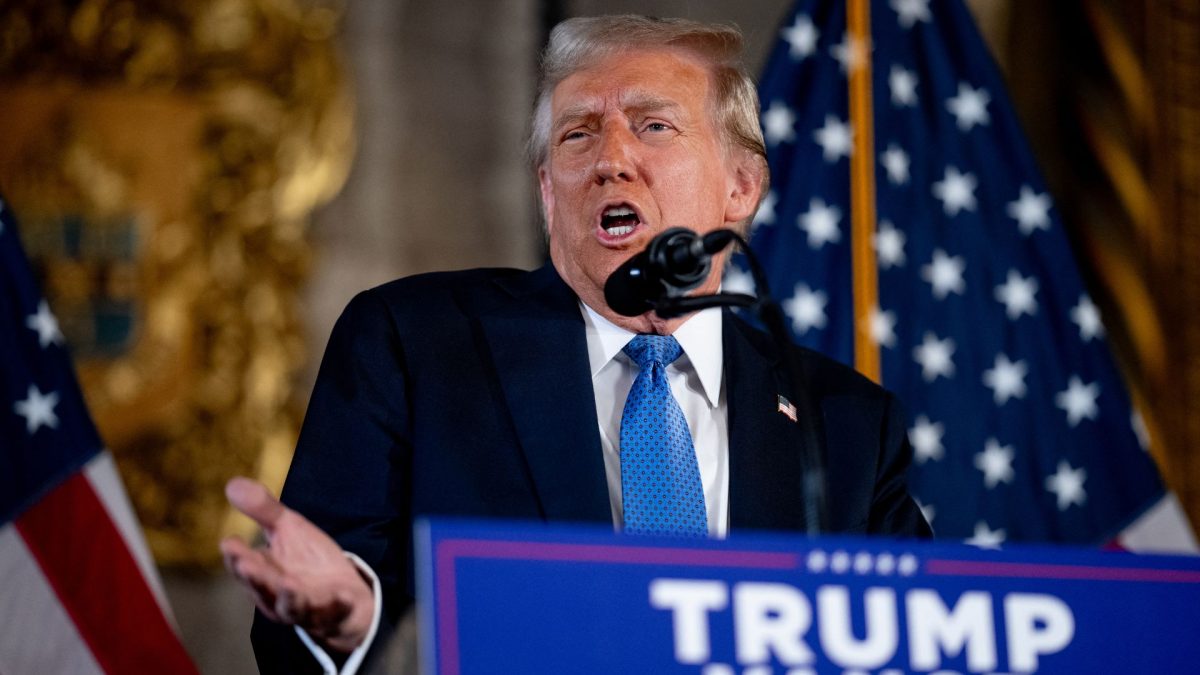The incoming Donald Trump administration wants to leave the World Health Organisation (WHO).
Members of the Trump team say that they are preparing to withdraw America from the WHO – perhaps as early as the first day of his new administration.
Trump previously tried to withdraw from the WHO during his first term. He began the process but didn’t follow through.
The decision ultimately was reversed by the Joe Biden administration.
But what do we know? And what happens if this becomes a reality?
Let’s take a closer look
What do we know?
First, let’s take a brief look at the WHO.
The United Nations agency was founded in 1948 in Geneva.
Its charter says its mandate is to promote “the highest possible level of health” in all people.
It defined health as “a state of complete physical, mental, and social well-being and not merely the absence of disease or infirmity.”
The WHO directs and coordinates the world’s response to health emergencies. It works with 194 Member states across six regions and is on the ground in over 150 locations.
Its goal is to expand universal health coverage. Arguably its biggest victory is the eradication of smallpox in 1970 and the near eradication of polio.
The Financial Times first reported that Trump ’s advisors are impressing upon him that the United States needs to exit the WHO.
They are pushing the exit on day 1 of his new term.
“I have it on good authority that he plans to withdraw, probably on Day One or very early in his administration,” said Lawrence Gostin, professor of global health at Georgetown University in Washington and director of the WHO Collaborating Center on National and Global Health Law.
The plan, which aligns with Trump's longstanding criticism of the UN health agency, would mark a dramatic shift in US global health policy and further isolate Washington from international efforts to battle pandemics.
The development comes amid Trump nominating several critics of the organisation to top public health positions, including Robert F Kennedy Jr., a vaccine sceptic who is up for the post of secretary of Health and Human Services, which oversees all major US health agencies including the Centers for Disease Control (CDC) and Food and Drug Administration (FDA).
As per Gzeromedia, anti-vaxxer David Weldon will head up the Centers for Disease Control (CDC), while incoming Food and Drug Administration commissioner Martin Makary has questioned the efficacy of the hepatitis B vaccine and COVID boosters.
Trump initiated the year-long withdrawal process from the WHO in 2020 but six months later his successor, President Joe Biden, reversed the decision.
Trump has claimed that the agency failed to hold China accountable for the early spread of COVID-19. He has repeatedly called the WHO a puppet of Beijing and vowed to redirect US contributions to domestic health initiatives.
A WHO spokesperson declined to directly comment. She instead referred to comments by WHO Director-General Tedros Adhanom Ghebreyesu in December.
Ghebreyesu, asked whether he was concerned that the Trump administration would withdraw from the organisation, said at the time that the WHO needed to give the US time and space for the transition.
He also voiced confidence that states could finalise a pandemic agreement by May 2025.
What happens if this becomes a reality?
Critics say it could be a disaster for global disease surveillance and emergency response systems.
“Politically, Trump’s lack of support could open the door to lowered support from other countries, in an environment of increased scepticism towards international engagement and foreign aid in general—especially among many ascendant right-wing parties in Europe—amid fiscal constraints and pressures to increase defence spending,” Eurasia Group’s Laura Yasaitis told Gzero Media. “Ongoing pandemic preparedness efforts, such as the pandemic treaty, would be majorly set back, as would other efforts like the polio eradication campaign.”
It could also open the door for China to step in.
“The US would lose influence and clout in global health and China would fill the vacuum. I can’t imagine a world without a robust WHO. But US withdrawal would severely weaken the agency,” Gostin said.
The Gzero Media piece noted that Beijing will raise no objection since it stands to benefit most.
“If Trump was worried about Chinese control of the WHO back in 2020, pulling out in 2025 would all but guarantee that Beijing steps into the void,” the piece contended.
A piece in The New York Times argued that Trump taking office only makes a bad situation for global health groups worse.
It noted several health challenges including dengue fever cases skyrocketing in Latin America, the mutated mpox virus, the avian influenza evolving, cholera and measles death increasing and the parasite which causes malaria becoming more resistant to drugs.
“The reality that these organisations are unlikely to get anywhere near the amount of money they are seeking is driving debate about whether — and how — the current global health system should be restructured,” the piece noted.
“Global health priorities are now competing with climate change and wars for funding, and aid budgets have already been cut in major donor countries, including Britain, Germany and Japan. Health organisations are bracing for the likelihood that the second Trump administration will sharply reduce contributions from the United States, as well,” the piece concluded.
Trump pulling out of the WHO could also impact the pandemic agreement that the WHO’s 194 member states have been negotiating for two years.
The pact, which acknowledges the failures of health organisations to react during the COVID-19 pandemic, could increase collaboration before and during pandemics.
An initial attempt to seal an agreement failed this year and diplomats see a deal, which right-wing commentators say would undermine sovereignty, as less likely under Trump.
With inputs from agencies


)

)
)
)
)
)
)
)
)



